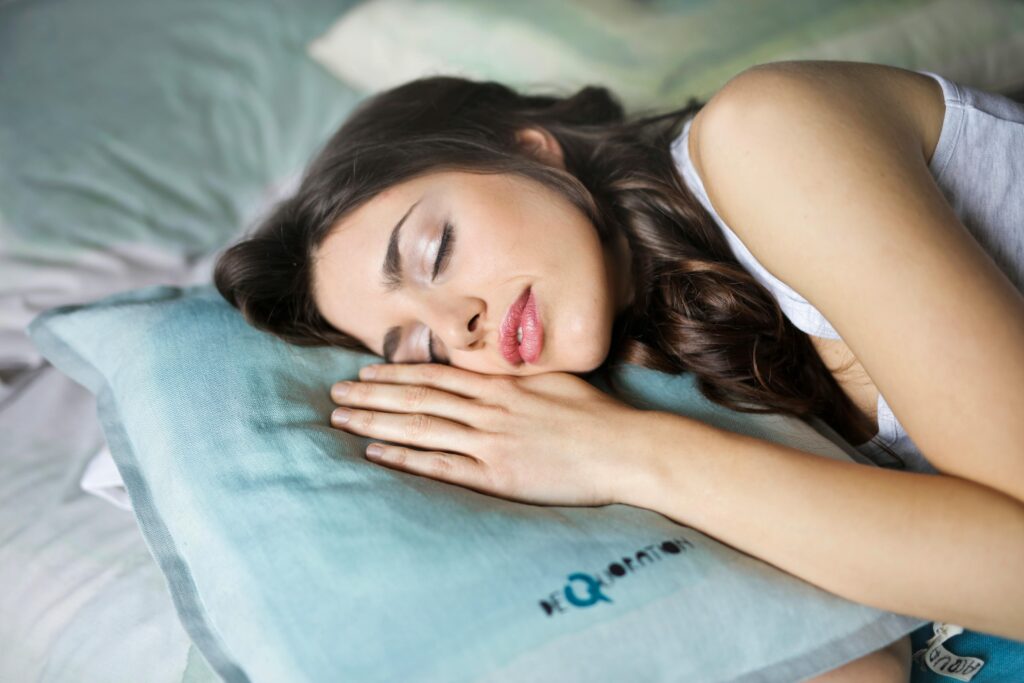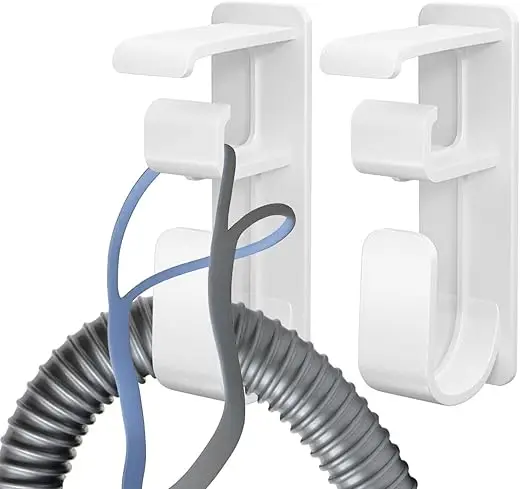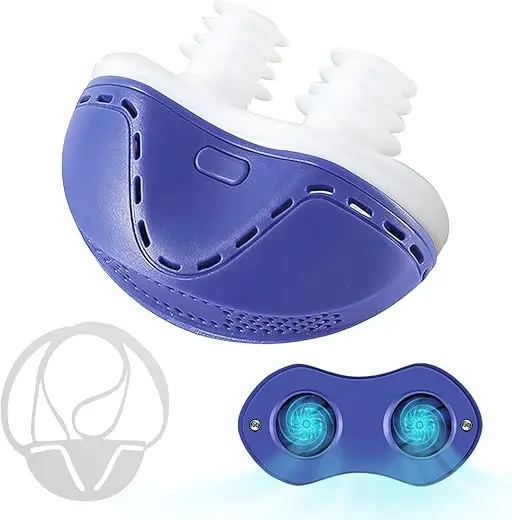Tired of CPAP struggles? Revolutionary new sleep apnea treatments are changing lives. From implantable devices to cutting-edge therapies, discover the latest innovations that could transform your sleep.
The Sleep Apnea Treatment Revolution
Sleep apnea treatment has evolved dramatically in recent years, moving far beyond the traditional CPAP-only approach. While CPAP remains highly effective, the latest innovations offer hope for patients who struggle with conventional therapy or seek more convenient alternatives.
What’s driving these innovations?
- Growing patient demand for CPAP alternatives
- Advanced medical technology enabling new approaches
- Better understanding of sleep apnea mechanisms
- Improved surgical techniques with higher success rates
- Personalized medicine approaches for individual patients
Let’s explore the newest treatments revolutionizing sleep apnea care in 2025.
1. Inspire Hypoglossal Nerve Stimulation
What Makes It Revolutionary:
Inspire therapy represents the most significant breakthrough in sleep apnea treatment since CPAP was introduced. This implantable device works by stimulating the hypoglossal nerve, which controls tongue movement, preventing airway collapse during sleep.
Latest 2025 Updates:
- Enhanced algorithms improve therapy effectiveness by 15-20%
- Smaller device design reduces surgical invasiveness
- Extended battery life now lasting 12-15 years (up from 10)
- Expanded candidate criteria allowing treatment for more patients
- Remote monitoring capabilities for better follow-up care
Who It’s For:
- Moderate to severe OSA (AHI 15-65)
- CPAP intolerant or unsuccessful
- BMI ≤ 35 (some centers now accepting up to 40)
- Appropriate airway anatomy confirmed by sleep endoscopy
Success Rates:
- 68% average reduction in sleep apnea events
- 85%+ therapy adherence rates
- 94% patient satisfaction with treatment
- Sustained benefits maintained over 5+ years
2. Advanced Oral Appliance Therapy
Next-Generation Designs:
2025 has brought remarkable improvements in oral appliance technology, making them more effective and comfortable than ever.
Latest Innovations:
Smart Oral Appliances:
- Built-in sensors track compliance and effectiveness
- Bluetooth connectivity for data sharing with providers
- Automatic adjustments based on sleep patterns
- Integration with smartphone apps for patient monitoring
Precision-Fit Technology:
- 3D printing customization for perfect fit
- Digital impressions eliminate uncomfortable molding
- AI-powered design optimizes jaw positioning
- Titanium components increase durability and reduce size
Hybrid Devices:
- Combination therapy with mild positive pressure
- Adjustable advancement during sleep
- Temperature regulation for enhanced comfort
Effectiveness Improvements:
- Success rates increased to 70-80% for mild-moderate OSA
- Better tolerance with improved materials and design
- Reduced side effects through precision engineering
- Faster adjustment periods with smart feedback systems
3. Surgical Breakthroughs
Inspire-Friendly Procedures:
New surgical techniques are expanding the pool of patients eligible for Inspire therapy:
Palatal Stiffening Procedures:
- Radiofrequency treatments reduce soft palate collapse
- Minimally invasive techniques with quick recovery
- High success rates in converting unsuitable candidates
Tongue Suspension Procedures:
- Advanced suture techniques prevent tongue-based obstruction
- Outpatient procedures with minimal downtime
- Combined approaches addressing multiple obstruction sites
Robotic-Assisted Surgery:
Da Vinci robotic systems now enable:
- Ultra-precise tissue removal with minimal trauma
- Faster recovery times compared to traditional surgery
- Better outcomes through enhanced visualization
- Reduced bleeding and swelling
Novel Surgical Approaches:
- Transoral tongue base reduction using plasma technology
- Drug-eluting stents for nasal obstruction
- Bioabsorbable implants for soft palate stiffening
4. Pharmacological Innovations
Breakthrough Medications:
For the first time, effective medications for sleep apnea are showing promise:
Solriamfetol (Sunosi):
- FDA-approved for excessive sleepiness in OSA
- Improves daytime alertness without treating underlying apnea
- Adjunct therapy with other treatments
- Well-tolerated with manageable side effects
Pitolisant (Wakix):
- Novel mechanism targeting histamine receptors
- Reduces sleepiness in sleep apnea patients
- Alternative option for stimulant-intolerant patients
Emerging Compounds:
- Cannabinoid-based therapies showing promise in trials
- Anti-inflammatory medications targeting airway inflammation
- Muscle tone modulators preventing airway collapse
Combination Approaches:
- Medication + CPAP for enhanced compliance
- Drug therapy + oral appliances for improved effectiveness
- Targeted medications for specific patient phenotypes
5. Positional and Lifestyle Therapies
Smart Sleep Position Training:
Advanced wearable devices now provide:
- Real-time feedback to maintain optimal sleep position
- Gradual training programs for sustainable position changes
- Sleep stage awareness timing position corrections
- Integration with sleep apps for comprehensive monitoring
Notable Devices:
- Night Shift – vibrating positional trainer
- Sleep Position Trainer – smartphone-based solution
- Smart pillows with built-in position monitoring
Weight Management Innovations:
New approaches to weight loss specifically for sleep apnea:
- Targeted nutrition programs designed for OSA patients
- Metabolism optimization therapies
- Surgical weight loss with concurrent sleep apnea treatment
- Behavioral intervention apps with sleep focus
6. Emerging Technologies
Electrical Stimulation Advances:
Beyond Inspire, new stimulation approaches include:
External Stimulation Devices:
- Non-invasive tongue stimulation during the day
- Transcutaneous electrical stimulation of airway muscles
- Targeted muscle training programs
Advanced Implantable Systems:
- Multi-site stimulation targeting multiple muscles
- Closed-loop systems responding to real-time airway changes
- Combination neurostimulation for complex cases
Gene Therapy Research:
Cutting-edge research is exploring:
- Genetic markers for treatment response prediction
- Personalized therapy based on genetic profiles
- Targeted interventions for genetic predispositions
Artificial Intelligence Integration:
AI is revolutionizing sleep apnea care:
- Predictive algorithms for treatment selection
- Automated therapy optimization for CPAP and oral appliances
- Real-time adjustment of treatment parameters
- Personalized treatment pathways based on patient data
7. Combination Therapy Approaches
Multi-Modal Treatment:
The newest trend is combining treatments for optimal outcomes:
CPAP + Oral Appliance:
- Lower CPAP pressures with oral appliance support
- Improved compliance through combined approach
- Better outcomes than either treatment alone
Surgery + Device Therapy:
- Surgical optimization followed by Inspire or CPAP
- Staged approaches addressing multiple obstruction sites
- Customized combinations based on individual anatomy
Lifestyle + Medical:
- Weight loss + positional therapy
- Sleep hygiene + medication
- Exercise programs + device therapy
8. Patient-Centered Care Innovations
Telemedicine Integration:
Remote care capabilities have expanded dramatically:
- Virtual consultations for initial evaluations
- Remote device monitoring for all treatment types
- AI-powered coaching for therapy optimization
- 24/7 support through digital platforms
Shared Decision-Making Tools:
New tools help patients choose optimal treatments:
- Interactive decision aids comparing treatment options
- Outcome prediction models for individual patients
- Cost-effectiveness calculators for insurance decisions
- Quality of life assessments guiding treatment selection
Choosing the Right New Treatment for You
Assessment Factors:
Determining the best new treatment depends on:
Medical Factors:
- Sleep apnea severity and type
- Anatomical considerations through sleep endoscopy
- Comorbid conditions affecting treatment choice
- Previous treatment experiences and outcomes
Lifestyle Factors:
- Travel requirements and work schedule
- Partner considerations and noise tolerance
- Activity levels and exercise habits
- Technology comfort and compliance likelihood
Personal Preferences:
- Invasiveness tolerance (surgical vs. non-surgical)
- Maintenance commitment for ongoing care
- Cost considerations and insurance coverage
- Timeline expectations for results
Working with Your Sleep Team:
Modern sleep medicine emphasizes:
- Comprehensive evaluation of all treatment options
- Shared decision-making between patient and provider
- Trial periods for reversible treatments
- Combination approaches when single treatments aren’t sufficient
- Regular reassessment and treatment optimization
What’s Coming Next: Future Innovations
On the Horizon (2025-2027):
- Minimally invasive tongue stimulation devices
- Bioengineered tissue for airway reconstruction
- Smart contact lenses monitoring sleep patterns
- Precision medicine approaches based on genetics
- Neural interface technologies for direct brain-airway communication
Research Pipeline:
- Stem cell therapy for airway tissue regeneration
- 3D printed implants customized to individual anatomy
- Nanotechnology for targeted drug delivery
- Virtual reality training for breathing patterns
Making the Decision: Questions to Ask
Before Considering New Treatments:
- What specific problems do I have with current treatment?
- What are my treatment goals beyond just treating sleep apnea?
- How do new options align with my lifestyle and preferences?
- What does the evidence show about effectiveness for patients like me?
- What are the risks and benefits of each new approach?
- How will my insurance handle coverage for newer treatments?
- What’s the timeline for seeing results with different options?
Finding the Right Provider:
Look for sleep centers offering:
- Multiple treatment modalities under one roof
- Experience with newer technologies and procedures
- Comprehensive evaluation approaches
- Strong follow-up programs for optimization
- Research involvement in cutting-edge treatments
Conclusion: A New Era of Sleep Apnea Treatment
The answer to “What is the newest treatment for sleep apnea?” isn’t just one breakthrough – it’s an entire transformation in how we approach this condition. From implantable devices like Inspire to smart oral appliances, advanced surgery, and even medications, patients now have more effective options than ever before.
Key takeaways for 2025:
- Multiple effective alternatives to traditional CPAP exist
- Personalized treatment approaches are becoming standard
- Combination therapies often provide optimal outcomes
- Technology integration is improving all treatment types
- Patient-centered care emphasizes choice and lifestyle fit
The most important step is working with an experienced sleep medicine team who can evaluate your specific situation and guide you through the growing menu of treatment options. Whether you’re newly diagnosed or struggling with current treatment, the innovations available in 2025 offer real hope for achieving the restful sleep you deserve.
Don’t settle for inadequate treatment – explore the newest options that could transform your sleep and dramatically improve your quality of life.
Ready to explore the newest sleep apnea treatments? Schedule a consultation with a sleep specialist to discuss which innovative approaches might be right for your specific situation.
Related Articles:
- Inspire Sleep Apnea Device: Complete Guide 2025
- CPAP Alternatives: Every Option Explained
- Advanced Oral Appliances: Latest Innovations
- Sleep Apnea Surgery: Modern Techniques and Outcomes



